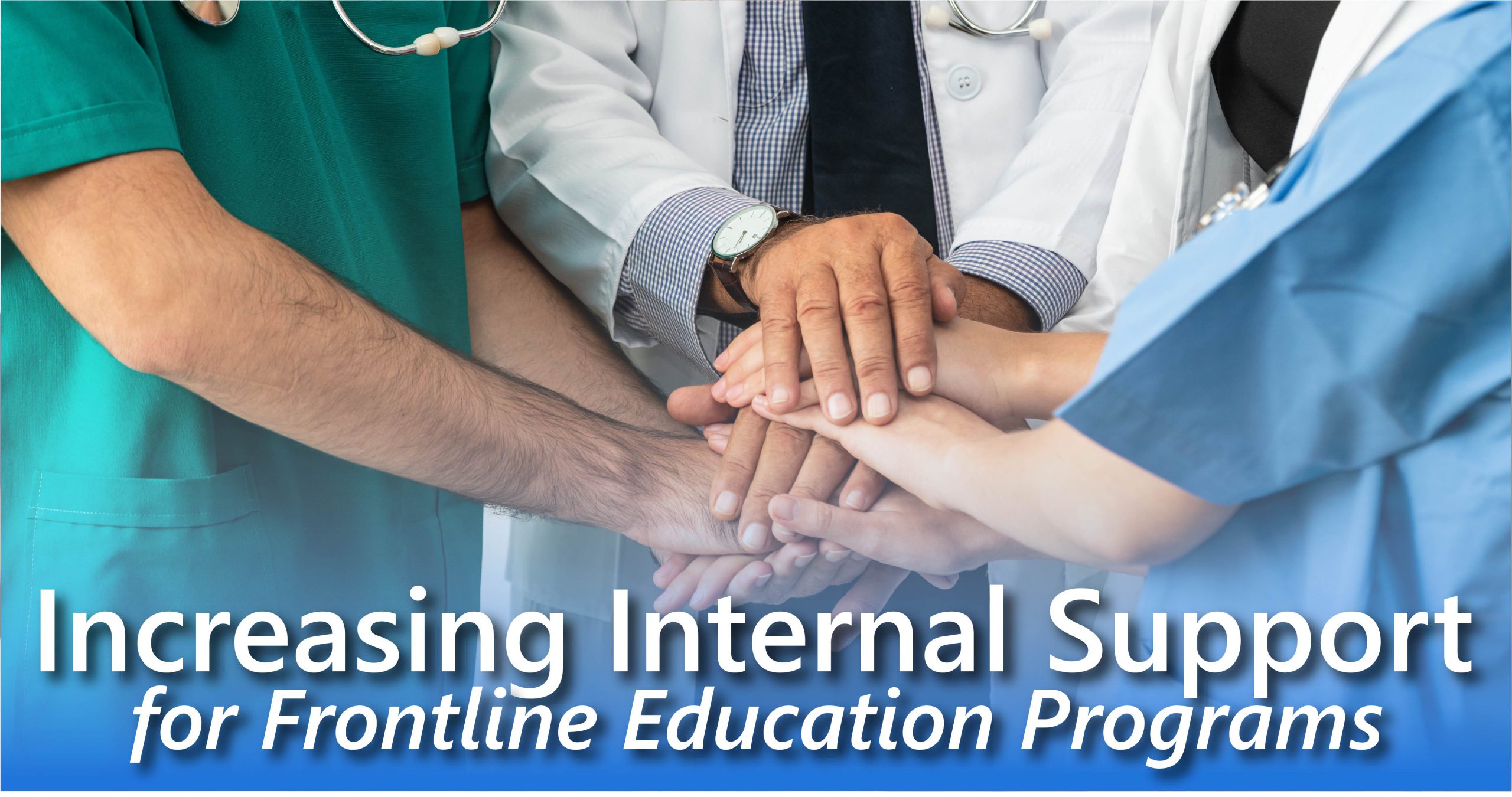By M. Lynn Fischer, Founder & CEO, Catalyst Learning Company
What if you’ve already launched a frontline education program and want to ensure its longevity in your organization for years to come? Likely you’ll face many challenges along the way ranging from budget changes to push-back from departments affected by short staffing. Your ability to anticipate obstacles in the future of your program will help it stand the test of time. Consider the following tips when planning for the new year:
Direct Supervisors and Hiring Managers – Central to Advancing Frontline Associates
The direct supervisors are in many ways the unsung heroes in the whole continuum of front-line employee development. Think about it. They have departments that will “work short” while employees are in training for skills. Your goal may be to get them promoted to work in another part of the organization. And often it is their best people that we’re asking them to develop; knowing they may be leaving that department!
So how to gain a direct supervisors’ support? An example would be to emphasize the near-term gains to the workgroup: a more knowledgeable, motivated, proactive employee with improved communication and initiative. Near-term skill gains can always be identified. You’ll just need to take the additional step to facilitate the connection for a direct supervisor.
Mercy (Missouri, Oklahoma, Arkansas)
Mercy has been very committed to providing learning and development opportunities for its lower paid coworkers, with goals to help compensation. It offers CLiMB, an online library of focused microlearnings for entry-level coworkers. CLiMB focuses on key healthcare work concepts like basic professionalism, communication, productivity, managing stress, and providing exceptional customer service. CLiMB’s 15-minute learning modules enable learners to practice real-world scenarios for learners to improve their performance.
During the pandemic, remote learning and development has become even more crucial for healthcare facilities. Beth Kinsey, a Senior Specialist of Talent Development at Mercy, notes that Mercy is seeing examples of how CLiMB learnings are being applied by frontline coworkers during times of COVID-19. She notes that coworkers are being more intentional about listening, taking instruction better, and diffusing team conflict. CLiMB participation is also gauged by HR as a way to see which entry-level coworkers are most interested in career advancement.
See our related articles, “Mercy Adopts New Technology to Educate & Advance Frontline Workers” and “Mercy Health: Living the Mission through Education of Frontline Coworkers.”
Now let’s consider the impact of the “Hiring Managers” that are in a position to offer a promotional opportunity. If a hiring manager knows an employee as the friendly and efficient person who takes her payment in the cafeteria or cleans her office, she is probably not thinking of that individual as the next candidate for a billing and coding or medical assistant she needs to hire. That’s where you, your internal partners in front-line development (e.g. a career advisor, recruiter, or coach) and, hopefully an organizational belief in “hire for attitude, train for skill” come in.
To change an impression a potential hiring manager has based on the front-line employee’s current role, invite her to attend graduations and other closing ceremonies for your programs. Go to bat for your higher-potential frontline team member by pitching hiring managers on motivation and persistence as valuable traits that merit giving someone a chance in a new role.
Overcoming the Impact of Labor Cost
The single biggest barrier to providing more education for front-level employees is the impact of labor cost on the hospital bottom line. Time in education classes is often categorized as “non-productive time” and carries penalties for direct supervisors who are measured and bonused on labor “productivity”.
Consider this method of compensation: “bonus upon program completion”. If employees clock out for class, there is no productivity impact to the manager and no chance that class time will create an overtime pay situation. By rewarding the employee with a bonus of equivalent amount at conclusion, there is a built-in incentive for completion.
A key element of increasing internal support is translating the needs of the often voiceless and sometimes invisible Essential Workers in our healthcare organizations to key influencers and seats of power. These leaders are busy, usually want to help, and need to quickly understand, “what do you want me to do”? Use the tools outlined here to improve your success with Direct Supervisors, Hiring Managers, and other key executives!
This article is an extension of our October post, “Support Diversity & Inclusion Initiatives by Upskilling the Front Line”, which outlined valuable tools and information needed to implement successful programs for frontline healthcare employees. Catalyst Learning’s front-line employee learning products provide a range of options tailored to different outcomes and budgets. If your target outcome is job advancement, take a look at our School at Work® or ECHO® experiences. If skill building is your focus, consider CLiMB or CAPS.
